Kenya’s brightest young entrepreneurs gather for Hand in Hand Youth Awards
01 Mar 2017
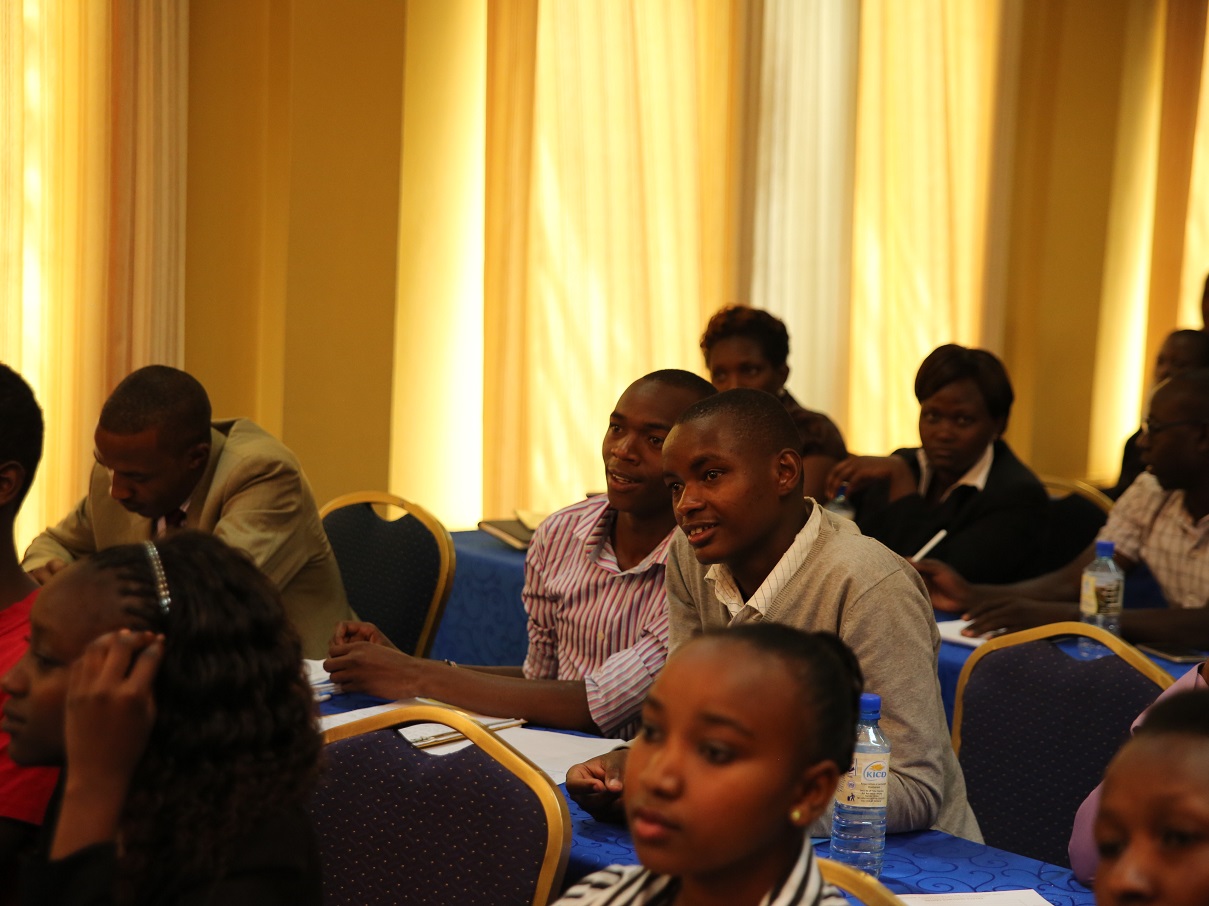
Eat your heart out, Dragon’s Den.
The second annual Hand in Hand Youth Awards have come and gone, bringing together some of Kenya’s best and brightest young entrepreneurs, trained at Self-Help Groups run by Hand in Hand Eastern Africa. The Awards were held as part of the Peace and Prosperity Through Job Creation project, funded by the Swedish Postcode Lottery.
Twenty-three entrants from across the country were shortlisted to showcase their businesses and business plans to judges, but only four could be winners. These are their stories.
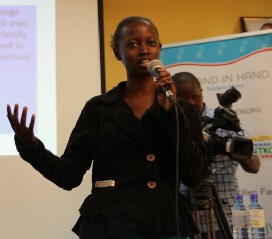
Catherine Wangari Maina – Saver Pal mobile app Armed with a degree from the Jomo Kenyatta University of Science and Technology, Catherine isn’t your typical Hand in Hand member. In one important way, however, her story is perfectly mundane: she is young, talented and unemployed. Across the world, some 600 million young people are forecast to graduate into joblessness over the next 10 years. Catherine hopes to make their lives just a little bit easier. The 22-year-old has developed a mobile budgeting app called Saver Pal to help young parents earning less than US $2 a day save a portion of their incomes, even while supporting their families’ needs. She plans to register the app as a legal business this year.
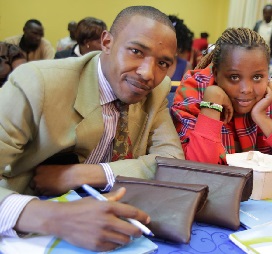
Jonah Gichuhi Kung’u – Leather tanning business Jonah, 26, was another university graduate compelled by unemployment into joining Hand in Hand. Less than a year later, his company Alpha Shannie Leather Industries employs 10 part-time staff, earning US $390 to US $580 a month. “Kenya does not have any leather industry yet this country is endowed with the raw materials,” he says. “There is also a growing demand for leather products in our country but people cannot afford them because the imported products are very expensive.” Next up, says Jonah: expansion into export markets.
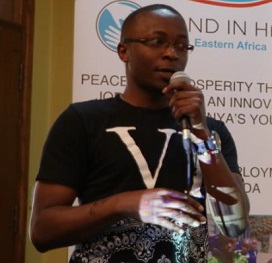
Edwin Muriuki Wanjiru – Batch-coding fresh produce Edwin, 24, is barcoding fresh produce to help farmers and consumers connect. By downloading his mobile app, now in the pilot phase, and pointing their phones at a given barcode, consumers will be able to contact farmers and alert them to any defects in their products. Edwin’s target market includes large-scale farmers and medium-sized plantations looking to edge their rivals with superior customer service.
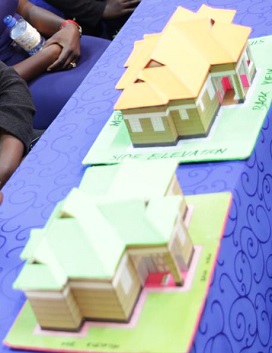
Patrick Mutinda Charles – Architectural models made from upcycled materials Raised by a single parent, Patrick couldn’t afford university, but that didn’t stop him from dreaming big. “I saw a lot of litter lying around our homes and this was such an eyesore,” says the 25-year-old, explaining his business. “I thought I would do something with these used materials to make a living as well as make the environment around me clean. That’s when I decided to collect and buy used cartons to make architectural designs, cards, wall hangings, flowers and slippers.” Despite never having stepped foot in an architecture class, Patrick counts several professional firms among his clients – a testament to his dedication and craftsmanship – and now earns US $100 a month. A portion of his profits go towards expanding his burgeoning poultry business.
Peace and Prosperity
The link between mass youth unemployment and insecurity is well documented. In 2013, for example, the African Development Bank studied 24 developing countries and found that while it wasn’t the only factor, “youth unemployment is significantly associated with an increase of the the risk of political instability.” Three years later, after terrorist group Al-Shabaab killed 148 people at Kenya’s Garissa University College, government officials and human rights organisations warned the country’s universities, home to thousands of young people with very few prospects, were becoming recruiting grounds for militants. Launched in October 2015, the Peace & Prosperity Through Job Creation project seeks to guide unemployed young people away from crime and radicalisation – and towards entrepreneurship. By the time the three-year project is done, some 7,000 young people aged 12-25 in primary and secondary schools, colleges, universities, polytechnics and outside of school will have been reached, with aim of creating some 4,000 jobs. Staff at Hand in Hand Eastern Africa are also driving the ‘Putting Youth Employment on the Agenda’ advocacy project, with the aim of putting entrepreneurship on the national curriculum.
Read more about our work with youth